Search Results
Showing results 1 to 20 of 74

Neurotransmitters Contain Chemicals
Source Institutions
In this activity, learners play a simple card game to learn the sequence of events in the transmission of nervous system signals.

Battleships: Searching Algorithms
Source Institutions
This activity explores the main algorithms that are used as the basis for searching on computers, using different variations on the game of battleships.

Two Washers
Source Institutions
In this activity, learners create a mind and math puzzle that requires a three-dimensional solution.

Soccer
Source Institutions
In this math activity (Page 12 of the Play Ball! PDF), learners play a game of "soccer" and analyze the results of the game.
Message in a Neuron
Source Institutions
In this activity, learners play a simple card game to learn the sequence of events in the transmission of nervous system signals.
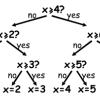
Twenty Guesses: Information Theory
Source Institutions
This activity introduces the idea that computer scientists measure information by how "surprising" a message is.

Basketball
Source Institutions
In this math activity (Page 14 of the Play Ball! PDF), learners play a game of "basketball" and analyze the results of the game.

Exercise and Memory
Source Institutions
This activity (page 1 of the PDF under SciGirls Activity: Exercise and Memory) is a full inquiry investigation into the effects of exercise on short term memory.
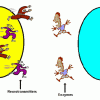
Synaptic Tag
Source Institutions
In this outdoor activity, learners review the parts of the synapse and their functions by playing a game.

Metamorphosis Matching
Source Institutions
This is an activity where learners will compare the different metamorphosis stages of amphibians.

Whose Fault Is It?
Source Institutions
In this seismic simulation, learners play a "who-dunnit" game to explore earthquakes.

Invent an Animal
Source Institutions
In this outdoor activity and game, learners explore how animals adapt for survival through coloration, markings and camouflage.
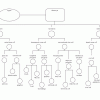
The Game of Life: Stem Cell Edition
Source Institutions
In this activity, learners play a game that models what happens as stem cells differentiate into different cell types.
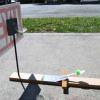
Parabola Basketball
Source Institutions
In this activity, learners build mini-basketball courts and explore the laws of physics. Learners discover that everything you throw or shoot on earth travels in a parabola.
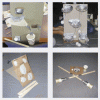
Get-Moving Game
Source Institutions
In this invention challenge activity, learners create an indoor game for one or two people that gets you moving.

Envirolopes
Source Institutions
In this outdoor activity and observation game, learners hunt for a variety of textures, colors, odors and evidence of organisms in the activity site.

Building Bingo
Source Institutions
In this on site "field trip" activity (located on pages 6-9 of PDF), learners get hands-on experience identifying building materials by playing "Building Bingo".

Variation Game
Source Institutions
In this set of outdoor games, learners play the role of monkeys that are trying to get enough resources (food, shelter, and space) to survive.

Dogs and More Dogs
Source Institutions
In this activity, learners play an evolution card game to see how selective pressures can affect an organism's evolution.

Odd Man Out
Source Institutions
In this math game (Page 14 of the Are You Game? PDF), learners determine the probability of getting an even versus an odd product using the numbers on a regular deck of cards.
